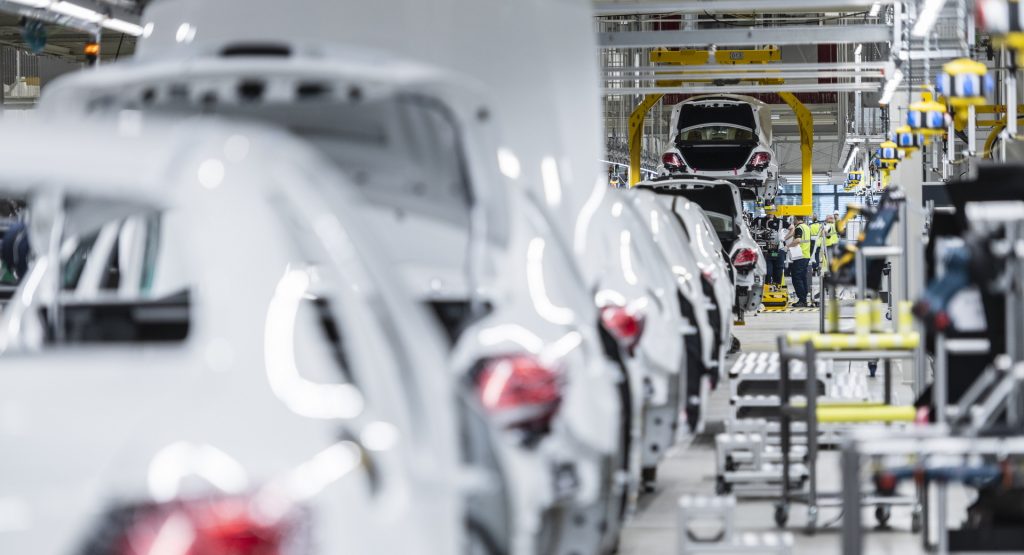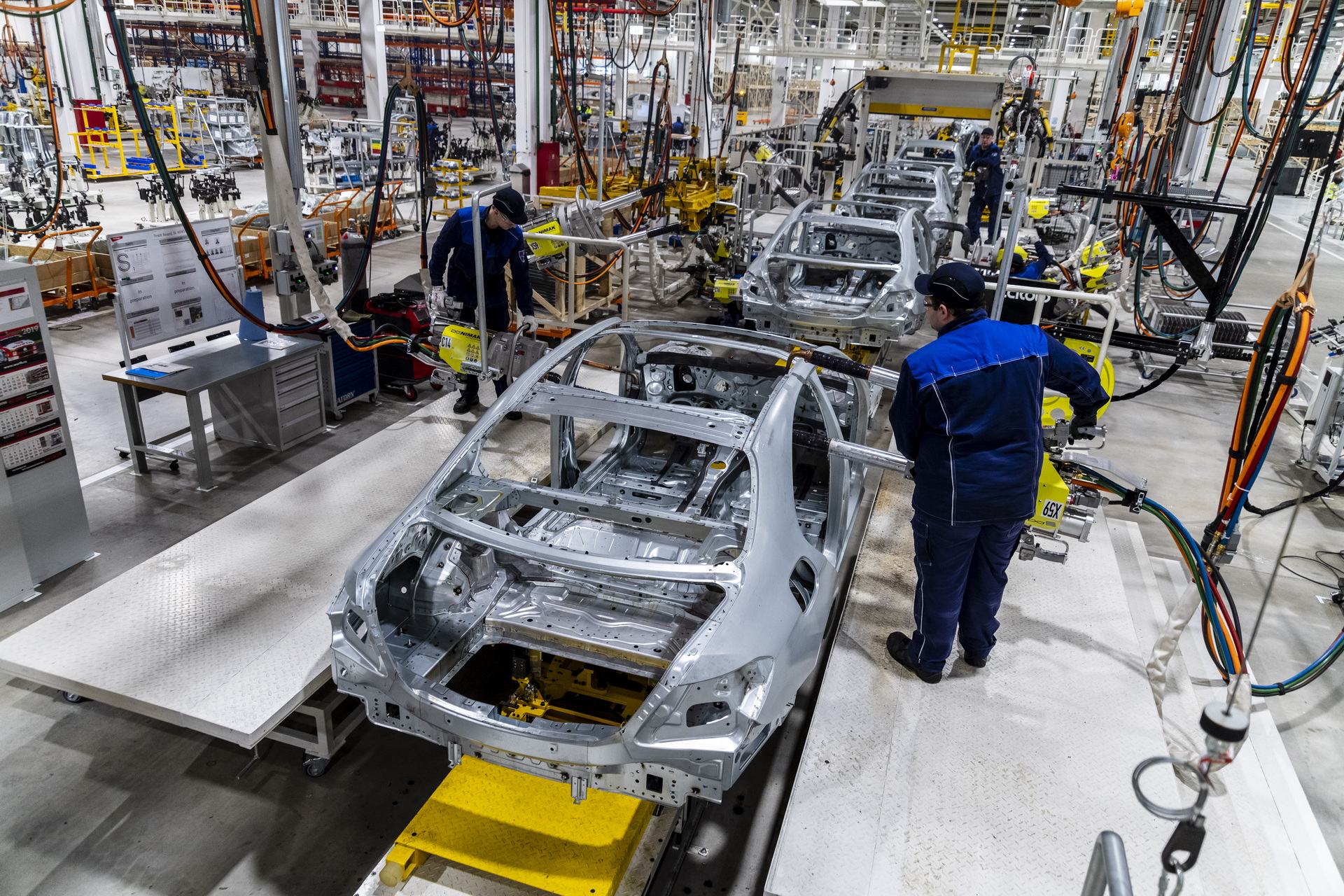In its annual report, Mercedes-Benz revealed that it has €2 billion ($2.18 billion USD at current exchange rates) in assets that could be at risk if Russia’s ruling party moves forward with a proposal to nationalize manufacturing plants owned by foreign companies that pause production during the country’s invasion of Ukraine.
The company warns that the war in Ukraine raised a number of risks that range from disruptions of parts and energy supply to cyberattacks, Reuters reports. It said that the risks could be made worse by “the potential expropriation of assets of Russian subsidiaries.”
Read More: Russia Threatens To Nationalize The Factories Of Foreign-Owned Companies That Pause Operations
Mercedes’ comments follow a proposal threatened by a senior member of United Russia, the country’s ruling party, to nationalize the production plants of “companies that announce their exit and the closure of production in Russia,” during its attack in Ukraine.
Although Mercedes is far from the only German manufacturer to pause production at plants it operates in Russia, its factory in Esipovo (near Moscow) was opened in 2019 and was the first plant operated by a foreign manufacturer to open in years. The automaker said its Russian units have liabilities to banks of approximately €1 billion ($1.09 billion USD), for which it has issued a global guarantee.
Russia’s Richest Man Warns That These Tit-For-Tat Measures Could Backfire
Russian billionaire and president of metals giant Norilsk Nickel, Vladimir Potanin, has warned the Kremlin though that nationalizing western companies’ assets could send the country back more than 100 years
“Firstly, it would take us back a hundred years, to 1917, and the consequences of such a step — global distrust of Russia on the part of investors — we would experience for many decades,” said Potanin on the Telegram messaging app, according to CNN.
“Secondly, the decision of many companies to suspend operations in Russia is, I would say, somewhat emotional in nature and may have been taken as a result of unprecedented pressure on them from public opinion abroad. So most likely they will come back. And personally, I would keep such an opportunity for them,” the 61 year old added. “We should not try to ‘slam the door’ but endeavor to preserve Russia’s economic position in those markets which we spent so long cultivating.”
Russia Bans Exports Of Over 200 Goods Including Cars
Russia this week decided to ban the export of certain products (including vehicles) to nations that it says have “committed unfriendly actions” against it. The move quickly led holdouts Stellantis and Hyundai to suspend operations in the country until further notice.
Meanwhile, Lada, Russia’s most popular brand (which is owned by AvtoVAZ, which in turn is owned by France’s Renault) has been forced to pause production, though that decision was made as a result of supply line issues stemming from foreign sanctions.






